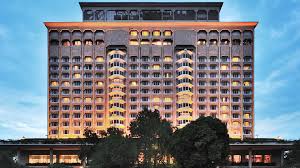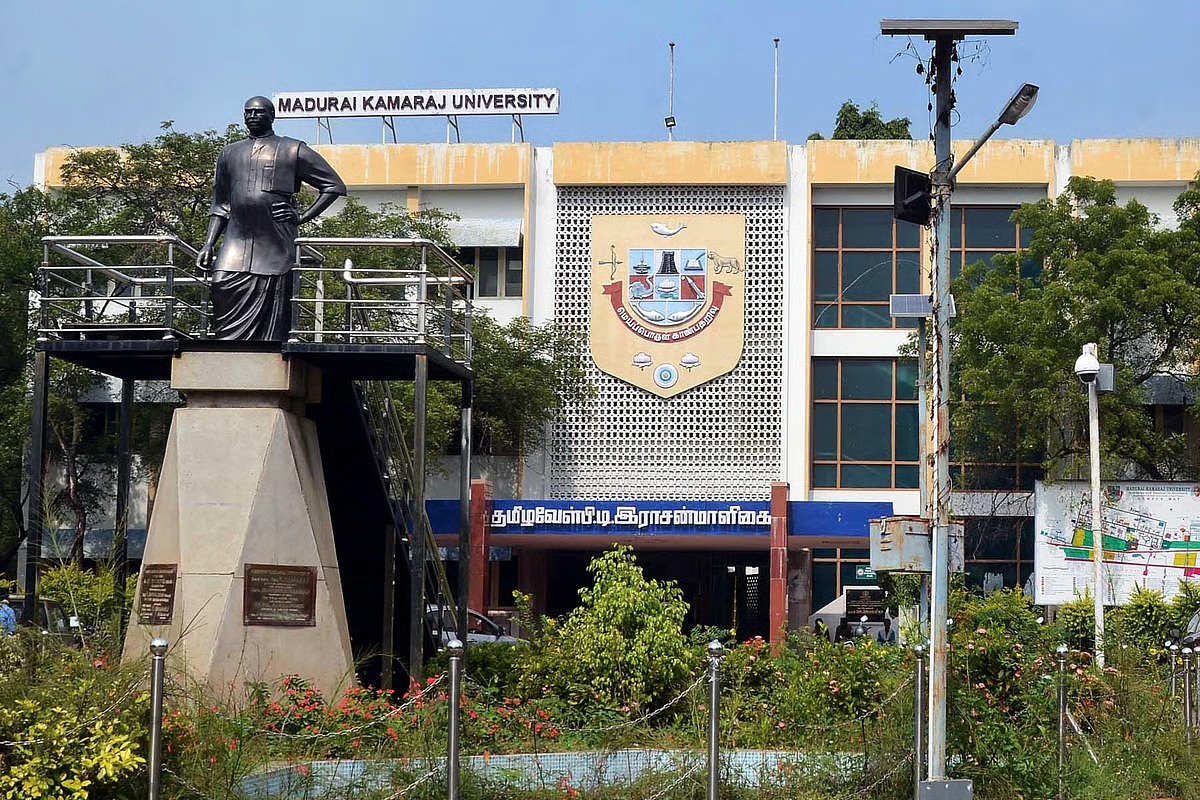Vyas, J.@mdashThe applicant, who is the proprietor and manager of a lodging house known as the Mandvi Central Lodge in Bombay, has been convicted of an offence u/s 131(a) of the Bombay Police Act (Act XXII of 1951) for running the said lodging house without obtaining a police licence u/s 33(w)(i) of the Act. He has been fined Rs. 50 and has further been directed u/s 131A(2) to close down his lodging house until he obtains a police licence under the Act.
2. Now, there is no dispute that the applicant does not possess a police licence for running this lodging house ; but his contention is that his lodging house does not fall within the purview of Sub-section (70) of Section 2 of the Bombay Police Act, which defines a "place of public entertainment" as any place where any kind of food or drink is supplied for consumption on the premises thereof. According to the applicant, the essential ingredient which makes a particular place a place of public entertainment, under the Bombay Police Act is that food or drink is supplied there for consumption, and he says that as this ingredient is lacking in the case of his lodging house, it is not a place of public entertainment under the Act and he does not need to possess a police licence to run it.
3. The learned trial Magistrate has held that, as a lodging house is included amongst the places mentioned in the later part of the definition of a place of public entertainment which says "and includes...," every lodging house, no matter whether food or drink is or is not supplied on the premises thereof for consumption, would be a place of public entertainment within the meaning of Sub-section (10) of Section 2, and, therefore, it would be an offence under the Act to run any lodging house without a police licence.
4. Thus the point of law which has arisen for our decision in this appeal is whether the applicant''s lodging house, even on the assumption that no food or drink is supplied on the premises thereof for consumption, is a place of public entertainment within the meaning of Section 2, Sub-section (10), of the Act. Our answer is in the affirmative.
5. I have already said that Section 2, Sub-section (10), of the Act, defines a place of public entertainment. The definition reads thus :-
''place of public entertainment'' moans any place to which the public are admitted, and where any kind of food or drink is supplied for consumption on the premises by any person owning or having an interest in or managing such place and includes a refreshment room, eating-house, coffee-house, liquor-house, boarding house, lodging house, hotel, tavern or wine, beer, spirit, arrack, toddy, ganja, bhang or opium shop;
Now, the learned Assistant Government Pleader for the State contends that, although the earlier part of the definition provides that a place where the public have an access and where food or drink of any kind is supplied for consumption would be a place of public entertainment, a lodging house where no food or drink of any description is supplied for consumption to the lodgers or members of the public would still be a place of public entertainment under the Act, as a lodging house, without any limitation as to the supply of food or drink for consumption on the premises thereof, is specifically and expressly included amongst the places which are declared as places of public entertainment u/s 2, Sub-section (70). On the other hand, Mr. Abichandani for the applicant says that the earlier part of the definition, which lays down the essential characteristics which would confer upon a particular place the character of a place of public entertainment, must not be ignored but must be given its due and full effect while construing the later part of the definition commencing with the words "and includes". He says that, unless this is done, there would be a conflict between the two parts of the definition, making the definition self-contradictory. We are told that the Courts must always lean towards resolving a conflict between the different parts of a definition by reconciling those parts if reconciliation is easily possible without straining the language. Mr. Abichandani submits that as all the expressions, except the expression ''lodging house'' occurring after the word ''includes'' in Sub-section (10), are places where food or drink is served for consumption, the term ''lodging house'' occurring in this sub-section must also in the context be construed to mean a place where food or drink is served. To include in the definition of a place of public entertainment a lodging house where no food or drink is served would be to introduce a conflict, says Mr. Abichandani, between the two parts of the definition, and that should, if possible, be avoided.
6. It is true that there may be lodging houses where lodgers are provided with residential accommodation only, whereas in certain other lodging houses they may further be provided with a cup of morning or afternoon tea with or without biscuits, fruits or light refreshments. Mr. Abichandani would have us agree with him that it is the latter category of lodging houses which would fall within the definition of a place of public entertainment as given in Sub-section (70) of Section 2. In our-view, to accept this submission pressed before us on behalf of the applicant by his learned advocate Mr. Abichandani would be to introduce an artificial distinction in the connotation of the term lodging house'' which we do not think the Legislature intended to do. Besides, Mr. Abichandani''s contention does not give due recognition to the fact that the later part of Sub-section (10) begins with the words "and includes". The term "includes" denotes addition to, or extension of, what has gone before, and the part which is an addition or extension need not necessarily possess the characteristics mentioned in the earlier part (see
7. Of course, it is clear that before any place could be held to be a place of public entertainment, it must satisfy the requirement that it is in fact a place of entertainment. Now, the act of furnishing accommodation is itself a form of entertainment (see Law Lexicon, p. 394) and there is no doubt that this particular lodging house of the applicant does furnish accommodation to the members of the public. It is not difficult to understand why mere providing of accommodation is a kind of entertainment. If a person with an extremely congested accommodation in his own house has to put up a guest, he must either puthim up in a hotel or put him up in a lodging house and take him to a hotel, refreshment room or eating house for his meals. No entertainment of a guest is complete unless he is provided, not only with food or drink, but also with a place to live in, Thus, quae the guest, furnishing him with accommodation is as much, if not more, a form of entertainment as providing him with meals. So now we understand the significance of the word "includes" in Sub-section (10) of Section 2 and the significance is that, although a lodging house, which is one of the places mentioned after the word "includes," may not provide the members of the public with food or drink and therefore may not fall within the ambit of the earlier part of the sub-section, it would still be a place of public entertainment. But for its specific inclusion among the places of public entertainment, a lodging house where mere accommodation is provided to members of the public would not be considered as a place of public entertainment, although members of the public are provided with entertainment by it by being furnished with residential accommodation.
8. Besides, if we were to accept the contention of Mr. Abichandani that the expression "lodging house" in Sub-section (10) of Section 2 means a lodging house where food or drink is provided to the public for consumption, there would scarcely be any substantial difference, in effect, between the expression, for instance, "boarding house" and the expression "lodging house." In our view, the term "lodging house" is used in addition to the word "boarding house" in Sub-section (10) because the two terms are not convertible terms and because each carries a distinctive meaning (see Law Lexicon, p. 752), namely, that whereas a boarding house provides boarders with residential accommodation and meals, a lodging house may furnish the lodgers with residential accommodation only.
9. Moreover, on principle we can see no reason why the Legislature should has intended to differentiate a lodging house, where no food or drink is supplied for consumption on the premises thereof, from the various places mentioned after the word "includes" in Sub-section (10). We are unable to see why the Legislature, in the interest of the maintenance of public order, should have intended, to exercise a certain amount of control, watch and supervision over the running of the refreshment rooms, eating houses, coffee houses., liquor houses, boarding houses, hotels, etc by making it compulsory for the proprietor or manager of these places to obtain a licence under the Bombay Police Act end why it should have intended to exclude a lodging house where no food or drink may be supplied for consumption from the necessity of obtaining a police licence. Could not such a lodging house be as much a venue of anti-social or undesirable activities as, for instance, a lodging house where food or drink is served for consumption or f boarding house or an eating house? Is not the maintenance of public order as much essential in a lodging house where no food or drink is served as it is in a lodging house where these articles are served? In our opinion, the same considerations which must have weighed with the Legislature in laying down that a boarding house or an eating house or a coffee house should not be run without obtaining a police licence must have led them to include a lodging house amongst the places mentioned after the word "includes" in Sub-section (10).
10. We, therefore, hold that the applicant''s lodging house is a place of public entertainment under the Act, notwithstanding the contention of the applicant that food or drink is not supplied for consumption on the premises thereof. It would accordingly be an offence u/s 131A of the Bombay Police Act to conduct this lodging house without obtaining a police licence in that behalf u/s 33(w)(i) of the Act. The applicant was, therefore, rightly convicted u/s 131A of the Act.
11. [The rest of the judgment is not material to the report.]
12. The result is that the order which has been passed by the learned Magistrate convicting the applicant and fining him a sum of Rs. 50 and the further order directing him to close down the lodging house until he obtains a police licence under the Act are both proper orders. The application is, therefore, dismissed.

